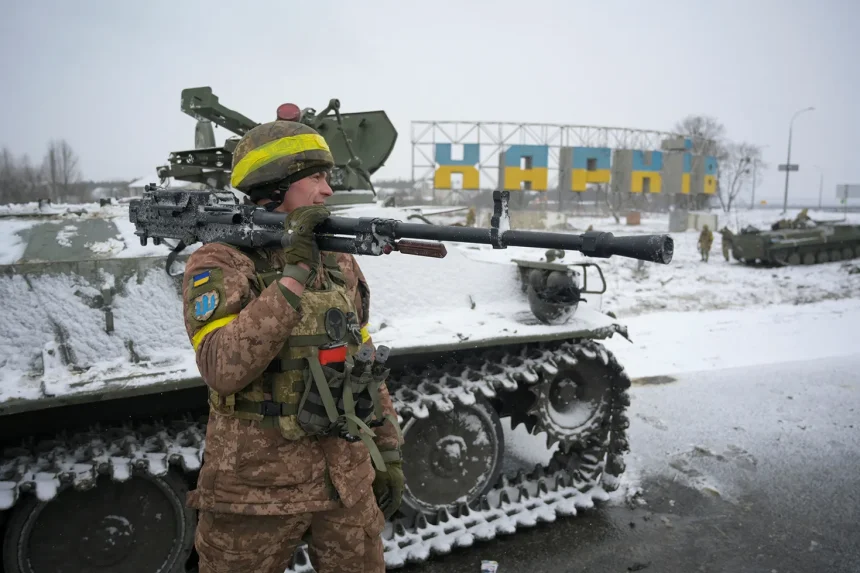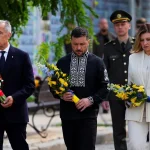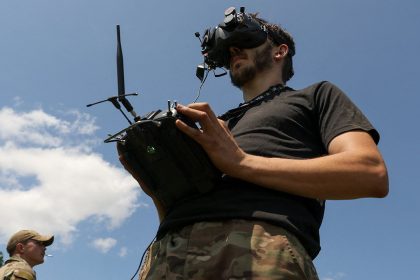In a dramatic development, Ukraine confirms Russian forces have penetrated the strategic Dnipropetrovsk region, marking a dangerous new phase in the war. The announcement comes as Kyiv faces mounting pressure on multiple fronts and international allies warn that the conflict is approaching a critical turning point.
The Dnipropetrovsk region, home to key industrial centers and energy infrastructure, has long been considered a strategic buffer zone protecting central Ukraine. Its breach by Russian troops has raised alarm not only in Kyiv but across NATO capitals, as it could potentially pave the way for deeper advances toward central and western Ukraine.
This article takes an in-depth look at the latest developments, using firsthand accounts, military assessments, and global reactions, to understand what this escalation means for Ukraine, Russia, and the wider world.
Why the Dnipropetrovsk Region Matters
The Dnipropetrovsk region, also known as Dnipro Oblast, has immense strategic, industrial, and symbolic significance. Located in southeastern Ukraine, it serves as:
A logistical hub linking eastern battle zones to central Ukraine.
An industrial powerhouse, with metallurgy, energy production, and defense industries concentrated in cities like Dnipro and Kryvyi Rih.
A defensive shield protecting the capital Kyiv and western regions.
Military analysts often describe Dnipropetrovsk as the “gateway to Ukraine’s heartland.” Its fall or destabilization could severely undermine Ukraine’s ability to sustain the war effort.
According to Ukrainian defense officials, Russian forces appear to have launched coordinated ground assaults combined with missile and drone strikes in recent weeks, testing the resilience of local defenses.
How Russia Penetrated the Region
The official confirmation came from Ukraine’s General Staff of the Armed Forces, which acknowledged that Russian units had crossed into parts of the Dnipropetrovsk border zones following intensified shelling.
- Witnesses reported:
- Heavy artillery barrages targeting supply routes.
- Use of Iranian-made drones to cripple power infrastructure.
- Ground incursions supported by armored vehicles and infantry units.
“Russian forces are attempting to destabilize our defenses by spreading their attacks across multiple axes,” a Ukrainian military spokesperson stated. “They have penetrated certain border zones of Dnipropetrovsk, but our troops are actively containing them.”
The breach comes amid reports that Moscow has shifted thousands of troops from other fronts, including Kherson and Zaporizhzhia, to intensify pressure on Dnipropetrovsk.
Humanitarian Impact on Civilians
As Ukraine confirms Russian forces have penetrated strategic Dnipropetrovsk region, civilians are bearing the brunt of the escalation.
- Tens of thousands of residents have reportedly fled frontline villages.
- Emergency services said at least 47 civilians were killed in the latest wave of strikes across the region.
- Power outages have left more than 200,000 people without electricity, as critical substations were targeted.
- A local teacher described the horror:
“When the rockets struck, everything shook. We thought it was the end. Families are leaving in panic, but many have nowhere to go.”
The United Nations has warned that a new humanitarian crisis could unfold if fighting spreads deeper into populated areas.
International Reactions
The international community has reacted sharply to Ukraine’s confirmation of Russian advances.
NATO Secretary-General Jens Stoltenberg warned that the penetration into Dnipropetrovsk could represent “a major turning point in Russia’s strategy.”
U.S. Secretary of State Antony Blinken pledged continued military aid, stating that Washington would “stand with Ukraine as it defends its sovereignty.”
European Union leaders are considering additional sanctions on Moscow, including restrictions on energy exports.
Meanwhile, Russia has framed the operation as a “necessary step to demilitarize Ukraine.” The Kremlin insists its forces are targeting only military infrastructure, a claim strongly disputed by Kyiv and international monitors.
Military Analysis: What Comes Next?
Defense experts say Russia’s incursion into Dnipropetrovsk may signal a broader strategy to overstretch Ukrainian defenses.
According to retired U.S. General Ben Hodges:
“If Russia consolidates control in Dnipropetrovsk, it would not only cripple Ukraine’s defense industries but also open pathways to central Ukraine. It’s a dangerous escalation.”
Ukrainian forces, however, are not backing down. The Ministry of Defense announced that reinforcements are being deployed, and advanced Western-supplied weaponry—including air defense systems and long-range missiles—is being positioned to halt further advances.
The battle for Dnipropetrovsk may become one of the decisive turning points of the war, potentially shaping the conflict’s trajectory for years.
Inside the War on Information
- Beyond the battlefield, the information war is intensifying.
- Russian state media portrays the Dnipropetrovsk advance as a “historic breakthrough.”
- Ukrainian officials counter with daily updates showing resilience and civilian solidarity.
- Independent observers note that propaganda is shaping perceptions, with both sides aiming to control the narrative.
The penetration of Dnipropetrovsk also serves as a psychological weapon. For Ukrainians, the thought of Russian troops advancing deeper into the country stirs fear but also strengthens resolve.
Global Stakes
Ukraine confirming Russian forces have entered Dnipropetrovsk carries consequences far beyond its borders.
Energy Security: The region houses critical power plants. Strikes have already disrupted electricity supplies across Ukraine and risk destabilizing Europe’s energy grid.
Food Supply Chains: Dnipro serves as a hub for grain exports. Disruptions could worsen global food insecurity.
Geopolitical Balance: A deeper Russian advance could undermine confidence in Western military support and embolden other adversarial states.
Historical Parallels
Military historians note parallels between the current escalation and World War II battles in Eastern Europe, where control of industrial regions often determined the outcome of campaigns.
Just as Nazi Germany targeted Ukraine’s industrial zones in the 1940s, Russia today sees Dnipropetrovsk as a prize that could weaken Ukraine’s war machine.
The Road Ahead
For Ukraine, the path forward is uncertain but defined by resilience. President Volodymyr Zelensky has vowed that “every meter of Ukrainian land will be defended.”
Western military aid is expected to intensify, but the challenge remains immense: sustaining defenses, protecting civilians, and preventing Russia from turning the breach into a larger occupation.
The coming weeks will be critical. Will Ukraine’s defenses hold, or will Russia establish a foothold that changes the war’s dynamics?
FAQs
Why is the Dnipropetrovsk region strategically important?
It is Ukraine’s industrial heartland, housing energy plants, defense industries, and serving as a gateway to central Ukraine.
How did Russian forces penetrate the region?
Through coordinated artillery, drone strikes, and ground incursions, overwhelming border defenses in certain zones.
What has been the civilian impact?
Dozens killed, thousands displaced, and hundreds of thousands without power due to infrastructure damage.
How has the international community responded?
NATO and Western allies condemned the escalation, pledging more aid to Ukraine while considering tougher sanctions on Russia.
Could this change the course of the war?
Yes. If Russia consolidates control, it could cripple Ukraine’s defense capacity and alter the balance of the conflict.
Conclusion
The confirmation that Russian forces have penetrated the strategic Dnipropetrovsk region marks one of the most consequential developments in the war to date.
It highlights the fragility of Ukraine’s defenses, the ruthlessness of Russia’s strategy, and the immense stakes for global security.
As civilians suffer, militaries mobilize, and the world watches, the fate of Dnipropetrovsk could define not just Ukraine’s future, but the trajectory of the entire conflict.













